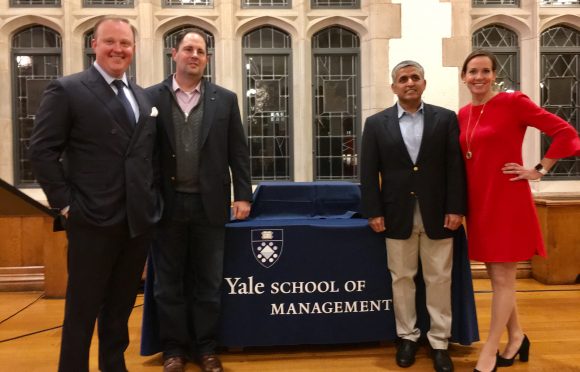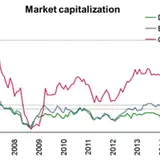Discover Your True North: A Combat Veteran’s Experience at Yale School of Management
As a Veteran of the United States Army, I’m honored to attend the Yale Global Executive Leadership Program (YGELP) at Yale University’s prestigious School of Management (SOM). This executive education program draws senior leaders from around the World. I am fortunate to be sitting with these c-suite leaders of global organizations. This is a unique, very memorable learning opportunity for me.

My journey at Yale SOM started with a research for top-notch leadership development program that supplements my military training and fits in following criteria:
- Accepts and values the Veterans of the United States Military
- Honors the request for Post 9/11 G.I. Bill and has Yellow Ribbon Program agreement with Department of Veterans’ Affairs
- Provides resources, mentorship and guidance while focusing on cutting edge business practices
- Brings great value to personal development through Alumni Benefits and networking opportunities
Yale SOM’s five-week long YGELP is the only leadership program that fit my search criteria. This program is brilliantly divided in three modules over the period of ten months in New Haven, Connecticut and attracts highly experienced leaders from around the globe.
Our cohort started with participation in the Annual CEO Summit held in New York, where we got a chance to meet with Larry Paige, John Legere, Terry Lundgren and over 200 CEOs of large companies. This opportunity gave us overview of latest business developments and networking opportunities.
Throughout my 17 years of career, I have had experience working with government, both civilian and military. However, I never worked with business leaders. My decision to go to Yale SOM was purely to learn how successful business models work and how innovation fosters at topnotch businesses.
I’m not going into many details about the benefits of the program or how it looks like in terms of its value and relationship to the work we do but I will go you a general idea of how business and management schools can truly open our eyes with relation to business techniques that we can apply to our workplace for strengthening individual sense of control and certainty among our workforce.
What is leadership? If you run a search, there are 110,986 definitions of leadership, every leader is different but what truly matters is the authentic leadership that builds trust and connects you with people. That is the common theme in every school and in every business.
Let’s not get too excited, you are being way too emotional about this, we need to work at this rationally. We all have heard those phrases at some point in our career. The emotional intelligence plays vital role in every organization. The emotions carry data that we can’t simply ignore, it’s very important to value each other’s emotions.
We were honored to hear Peter Salovey, President Yale University and the pioneer of Emotional Intelligence (EI). Mr. Salovey vividly shared his experiences and spoke about the importance of EI in today’s dynamic business world.
The courage of a leader can change the course of action. The SOM gave me an opportunity to hear Roz Savage, author of Stop Drifting-Start Rowing. In 2007, Roz set out to row 8,000 miles across the Pacific ocean-alone. She gave examples of her experiences in crossing the ocean and take away was that facing and embracing the failure is important, do not look outside yourself for the leader.
Yale SOM afforded me an opportunity to analyze my leadership style-using model developed by Professor Victor H. Vroom. This leadership development program has expanded my horizon on organizational culture, authentic leadership, measuring corporate performance, and effectively leading 21st century workforce.
For me there were numerous lessons learned, but I just highlighted few takeaways here. The most important aspect of this program is networking and learning from peers. Every module has given me the power tools, and the gap between modules gave me an opportunity to apply those learned skills.
This course drove me to embrace authenticity and stay curious. We went through exercises to conduct analysis on our own leadership style, an educational experience developed by Professor Victor H. Vroom of Yale University. We learned that it is customary for managers to vary their behavior, including the way in which they make decisions, with the situations they encounter. But it is far less common for managers to understand the implicit reasoning underlying these actions. Over time one’s leadership style becomes automatic-a matter of habit.
I can’t thank Yale SOM Leadership and Molly Nagler, Senior Associate Dean, Executive Programs enough for creating this learning opportunity for us and opening their doors to many veterans like me. Our veterans can certainly build the leadership skills coupled with cutting-edge business practices at Yale.



